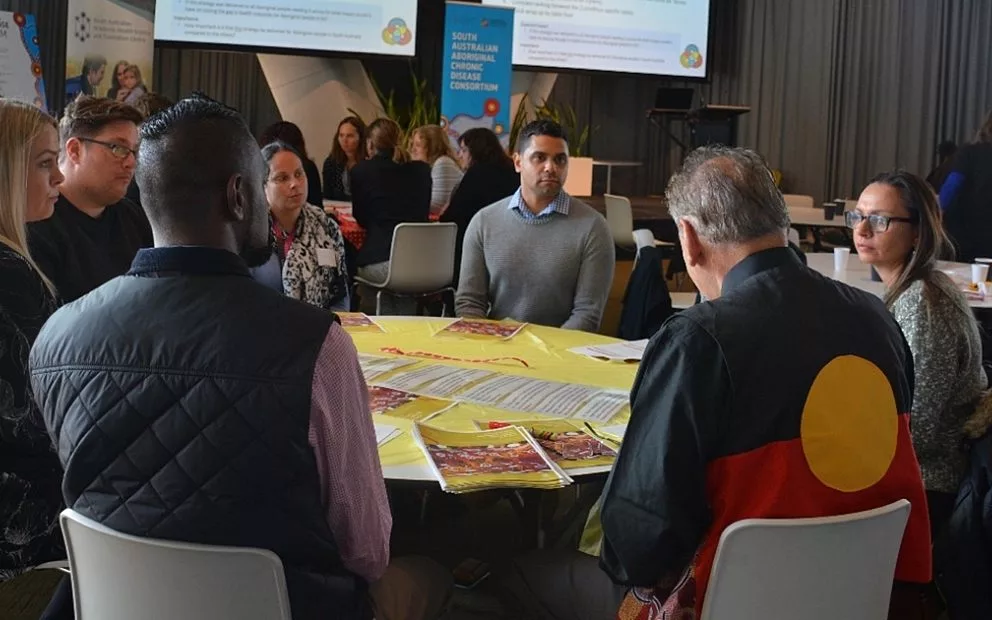The South Australian Aboriginal Chronic Disease Consortium will work alongside Aboriginal community members and relevant health sectors, including SA Health, the Commonwealth Department of Health and Aging and the Aboriginal Health Council of SA, and the SA based Primary Health Networks, to establish and implement priorities for reducing the impact of chronic disease in Aboriginal and Torres Strait Islander people.
In recognition of the vital importance of addressing disparities in chronic disease, three plans focussing specifically on diabetes, cancer control and heart and stroke in Aboriginal peoples in South Australia have been developed over the past 24 months. The three plans outline priority areas and key activities for implementation over the next 5 years.
Speaking at the launch of the Consortium on May 18, Professor Steve Wesselingh, Executive Director of SAHMRI, emphasised the importance of working collaboratively, particularly in regard to the Consortium’s partnership with the South Australian Academic Health Science and Translation Centre, “we are incredibly proud of this project, bringing partners together with great translation.”
Acknowledging the work of many over the past 50 years in the Aboriginal Health sector, Professor Alex Brown, Aboriginal Health Theme Leader of Wardliparingga Aboriginal Research Unit at SAHMRI, and Ms Kerri Reilly, Executive Director of the Aboriginal Health Directorate, Country Health SA Local Health Network, said that “it is now our responsibility to stand up and make a difference. This is an opportunity to lead the way with a true partnership and engagement of the Aboriginal Community.”
“Without sacrifice we wouldn’t be here. We count the amount of suffering and it’s time that we make a difference. We can only do this together, with your assistance” said Professor Brown, recognising the collective of health organisations, medical professionals and community members present throughout the conception and development of the Consortium.
Executive chair of the Aboriginal reference group, Ms Sandra Miller, is hoping to see a shift in the way previous programs have been rolled out.
“We haven’t seen anything work before and I’m hoping that by having Aboriginal people involved in all three plans we will be a force to be reckoned with. We are sick of going to funerals”, Ms Miller said.
Summary of the facts
- Heart disease and stroke are the single largest cause of death for Aboriginal people in South Australia, accounting for 1 in 4 deaths. It is the single largest contributor to the life expectancy gap experienced by Aboriginal people. Importantly, the deaths occur at a much younger age than non-Aboriginal people.
- The diabetes rates (types 1, 2 and gestational) for South Australia are 20% among Aboriginal people and 6.2% for non-Aboriginal people.
- Aboriginal people in South Australia are diagnosed with cancer at significantly younger ages compared to the non-Aboriginal population. More than half of diagnoses occur before the age of 60, compared to less than 30% of diagnoses in the non-Aboriginal population. Additionally, Aboriginal people are more likely to be diagnosed with cancer at a later stage and, as a result, have worse outcomes.
Preliminary findings of the priorities will be presented by the Consortium on June 30, 2017
If you would like to stay informed with the work of the Consortium, or if you would like to contribute your expertise, please contact Wendy Keech, South Australian Aboriginal Chronic Disease Consortium Executive Officer, Senior Translation Manager, wendy.keech@sahmri.com

